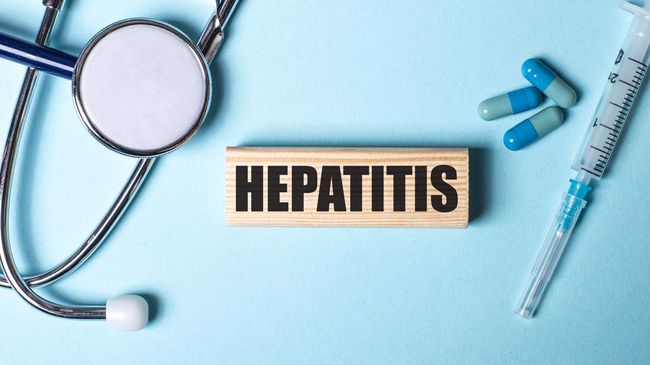Hepatitis mysterious acute disease has been detected in several areas of Indonesia. The Ministry of Health noted that 15 people had been exposed to this disease since April 27. Several suspects have also been detected in a number of areas.
There are some mysterious acute hepatitis symptoms that parents can watch out for when their child has a fever-like illness. One of the most common symptoms of this mysterious acute hepatitis is diarrhea or constant defecation experienced by the child.
This was also revealed by the Head of the Gastrohepatology coordinating work unit of the Indonesian Pediatrician Association (IDAI) Muzal Kadim. He said to distinguish diarrhea due to hepatitis and ordinary diarrhea is not an easy thing. Parents should take their child to a health facility if they suspect that their child has acute hepatitis.
“In general, it’s a bit difficult to tell the difference. We need more skilled health workers, if we as parents or lay people it is better to check with the nearest health facility,” said Muzal in a webinar held by IDAI, Tuesday (10/5).
Even so, Muzal said even though it was difficult there was still a difference between ordinary diarrhea and diarrhea due to hepatitis. The following is the difference between ordinary viral diarrhea and hepatitis caused by diarrhea.
1. Ordinary diarrhea
Diarrhea is a common disease that is often experienced by children. This disease can occur due to infection with a virus known as rotavirus. Usually the child will have a high fever before diarrhea.
“Fever first, then vomiting two or three times and then diarrhea,” he said.
Diarrhea due to rotavirus is also usually more fluid, sour smelling accompanied by bloating in the stomach.
2. Hepatitis diarrhea
Diarrhea due to hepatitis is also accompanied by fever and nausea. It’s just that the fever experienced by children is usually milder. On the other hand, the nausea and vomiting experienced by the child is even more intense and frequent until the child feels weak.
“The symptoms are usually nausea. There is diarrhea but rarely urinate and the fever is mild. The child also has abdominal pain due to an enlarged liver,” he said.
(tst/chs)
–


